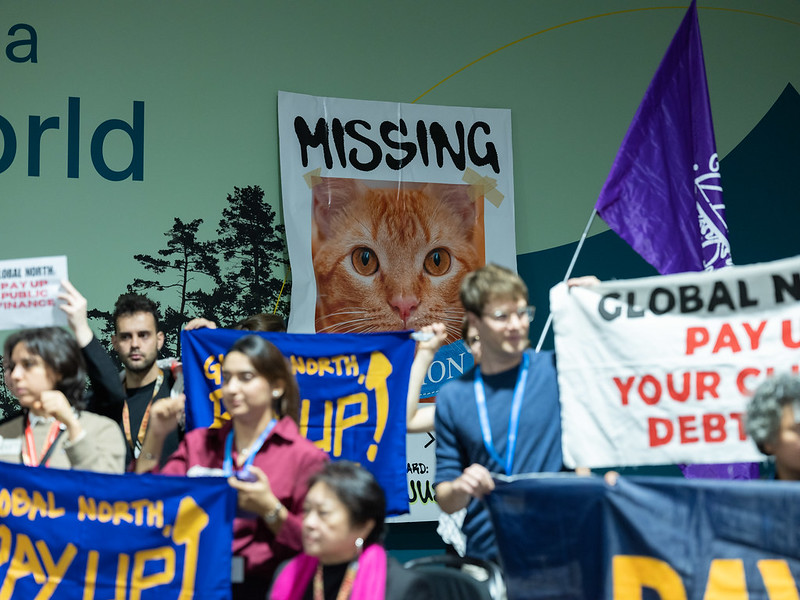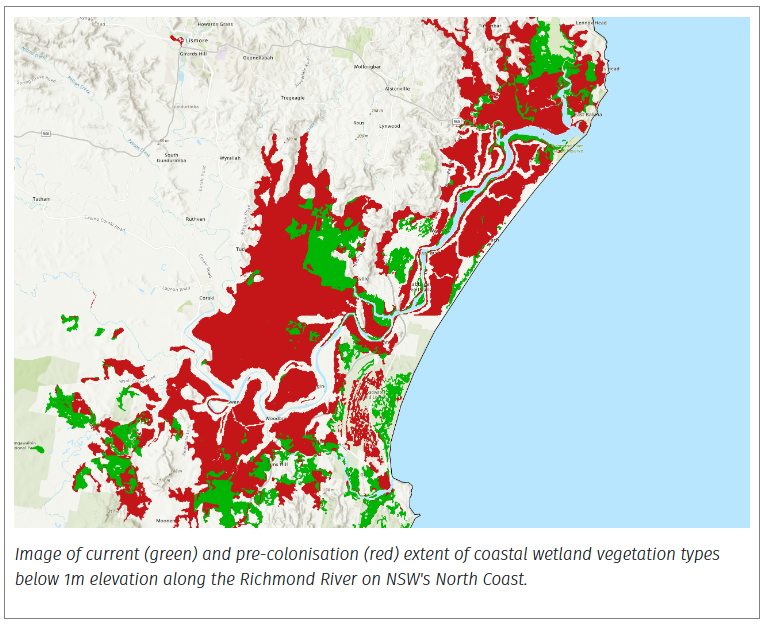Oxfam Australia has called the new global climate finance goal smoke and mirrors, responding to the COP29 climate finance agreement.

At COP29 wealthy countries agreed to mobilise USD$300 billion per year by 2035 to support low-income countries cope with climate change impacts and switch to renewable energy.
But Oxfam Australia Policy and Advocacy Lead, Josie Lee, said there would be no new money in this climate finance goal.
“Like the last goal, it allows wealthy countries who have caused the climate crisis to achieve the goal through rebadged aid budgets and non-concessional loans,” Lee said. “It’s a shameful failure to take responsibility and to hold big polluting corporations responsible, and it will only hurt the most vulnerable.
“This meaningless goal will push countries and communities that have done little to cause the climate breakdown, but are experiencing the brunt of the impacts, into debt and greater hardship. There is no honour in it.
“We cannot achieve the sustainable development goals to eradicate poverty if we are taking from the aid budget to meet the new and escalating challenge of climate change-fuelled disasters. But that’s exactly what Australia and other wealthy countries are doing.”
“Australia and other wealthy countries did not even support loss and damage being included in the new climate finance goal, which was the number one ask of Pacific communities. It’s no wonder our Pacific family is saying they feel insulted and that the process has shown contempt for the world’s most vulnerable.”
According to Solutions for Climate Australia, COP29 has ended as it ran. Held hostage by the interests of high-income countries and a petrostate presidency; scarred by deep divisions; and with an unjust finance outcome that fails to progress the COP28 agreement to transition away from fossil fuels.
“We flew across oceans but high-income countries and the Azerbaijani COP presidency didn’t seriously seek ambition,” said Erin Ryan, Senior International Campaigner at Climate Action Network Australia. “An annual finance goal of USD $300 billion signed off, might sound superficially like a large number. But when spread globally for what is required to transition, it leaves us where we started: with low-income countries struggling to shoulder the rising costs of a climate crisis they never caused.”
Large blocs of developing countries, civil society activists and independent experts had all called for over USD $1 trillion per annum in financial flows from high- to low-income countries. Drawing from reliable public funds, this new finance goal was hoped to include concrete targets for funding the transition away from fossil fuels and mitigation of climate pollution; adaptation to climate impacts; and addressing loss and damage caused by the climate crisis. Instead, the COP29 gavel has come down on a significantly smaller public finance goal of USD $300 billion per annum, to be reached by 2035.
“As a wealthy nation, and a huge fossil fuel exporter, the Australian Government notably failed to drive bigger ambition, failing to listen to the voices and expertise of our Pacific neighbours. This is about realism- getting better financial arrangements is key to getting global support for rapid fossil-fuel phase-out globally,” said Ms Ryan.
Ms Ryan was also critical of the opaque and non-inclusive manner in which COP29 played out, echoing concerns raised by the bloc of small island nations.
“The climate crisis impacts us all, it’s just a matter of how extreme. For some, their islands are sinking or their homes have burned to ash. Elsewhere, rising insurance costs are hurting people already struggling with their bills. We all have a story to tell, and we all have a stake in moving quickly away from fossil fuels. It hurts to see wealthy countries come here and play games in their windowless rooms, removed from the people.”
As Australia continues its diplomatic advocacy to secure hosting rights for COP31 in 2026, Ms Ryan says that a leadership model that engages the community is needed to avoid future drawn-out debates and disappointing outcomes.
“The COP process can be salvaged. We need to cut the self-interest and get back to why we’re here: to talk earnestly and openly about a crisis that affects all of us. That means kicking out the fossil fuel and carbon dumping lobbyists, creating space for front-line communities and indigenous people to raise bold ideas, and keeping negotiators face-to-face with the realities of a runaway climate emergency.”


